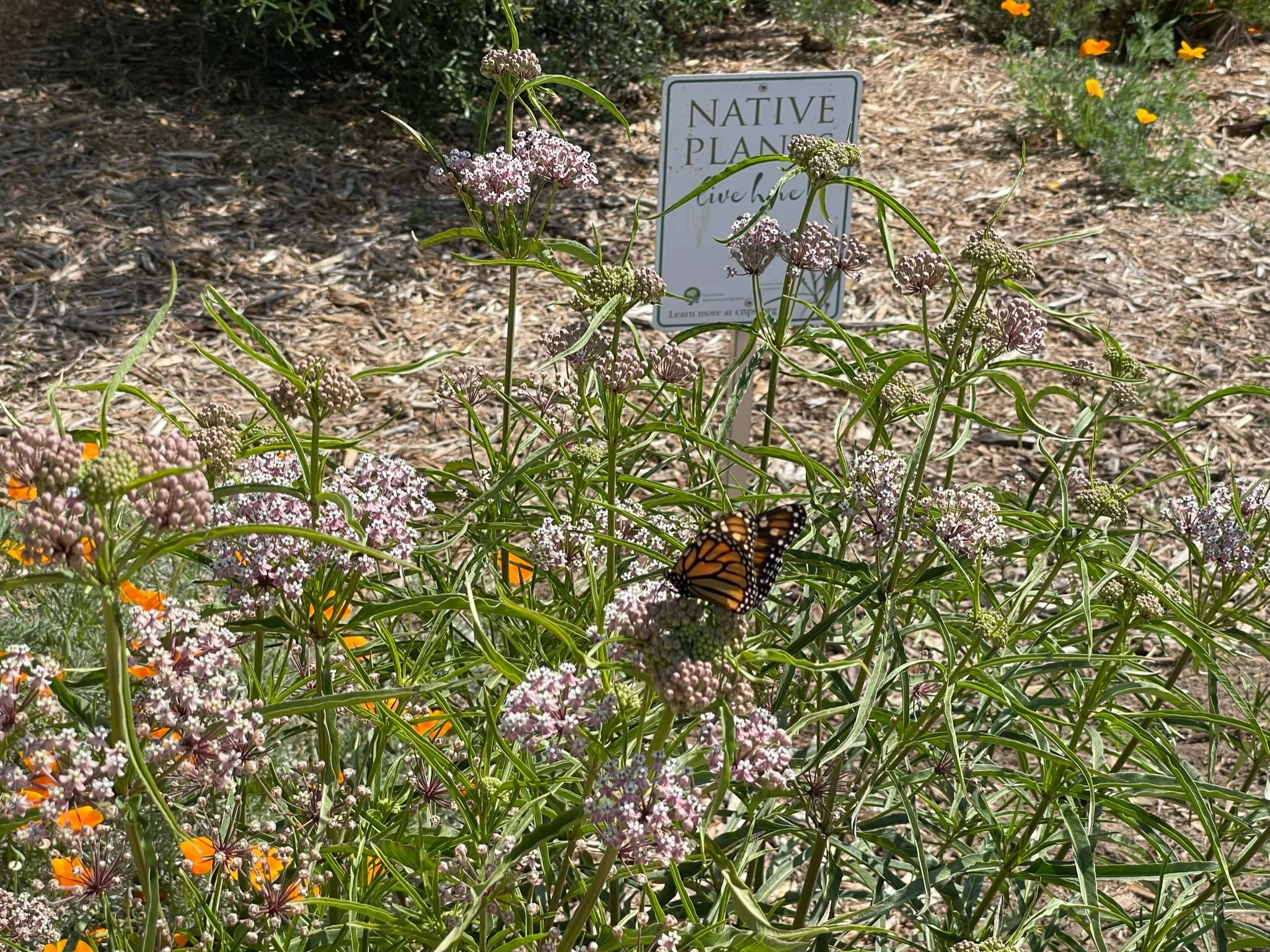LET’S SUPPORT BIODIVERSITY IN SILVER LAKE,
AND THROUGHOUT LOS ANGELES!
What Can You Do to Support and Protect Biodiversity at Home?
Plant locally native plants to supply food, forage, and shelter for our local and migratory birds, butterflies, and other creatures.
Avoid planting toxic and invasive plants, and remove them from your garden if you can.
Limit (or avoid!) leaf blowers, and especially keep them out of your garden. Sweep (or blow, with electric blowers) debris on your paths, stairs and patios into your garden, because…
Plant leaves are free mulch! Please leave the leaves in your garden. They also hold butterfly and other pollinator eggs, cycle nutrients, protect your soil from evaporation and erosion, and limit weed growth. Spread them out, under and around your plants, especially where there may be naked soil.
If you have hummingbird, bird and/or squirrel feeders, make sure to maintain them regularly. Clean often to prevent the spread of disease, and remove fallen bird seed to prevent weeds.
Likewise, clean and refill bird baths, butterfly saucers, and wildlife water stations daily, to prevent spreading disease and also mosquitoes, whose larvae can hatch in just 3 days.
Don’t use rodenticide! There are many other safe, humane ways to manage rodents and other pests. These chemicals kill rats and mice slowly, so they are often eaten by local predators who are then affected by the poison, too. Not just our mountain lions, but also the coyotes, bobcats, hawks, owls, gopher snakes and others who are happy to help keep the pests under control.
Maintain with care. Always check for bird nests before pruning trees and shrubs, especially during nesting season. Avoid excessive pruning during hot, dry summer months. If possible, limit hedge trimmer use and hand-prune instead, keeping shrubs open and more natural looking limits interior buildup of dead leaves and branches while allowing more space for birds and small creatures to rest and shelter.
Reduce light pollution. Shield outdoor lights, direct lighting downwards (better for the moths!), and use warmer colored light bulbs or filters. And control the lights, as needed for safety and outdoor use, but turn them off the rest of the time.
Maintain healthy, safe soil in your garden with organic practices, including compost, organic mulch, and avoiding chemical herbicides, pesticides, and fertilizers.
Planting Season in Los Angeles starts November 1st, when the days shorten, temperatures cool, and rain might start to fall. You can add plants to your garden year-round here, but planting during our cool, wet months gives them a chance to settle in and spread their roots, so they’ll better be able to handle our hot, dry summers.





